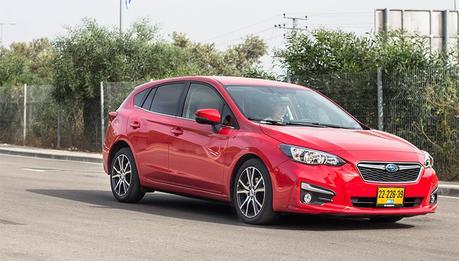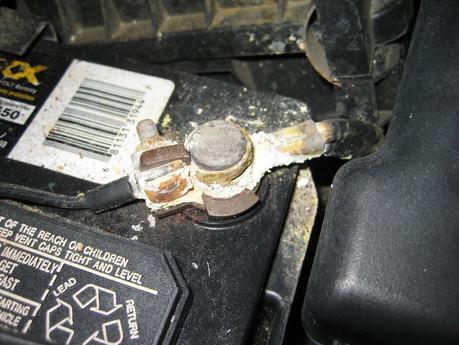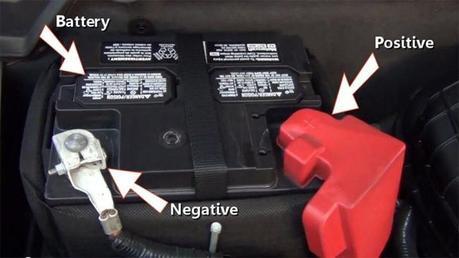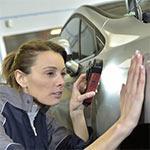Car batteries are important in ignition and powering on-board electronic gadgets. If you do not drive your car much, the batteries tend to die faster and frequently. What cause this? How can you manage your car batteries to avoid these problems?
Reasons Why Car Batteries Die In Less Driven Cars

Image source
Automotive experts contend that a standard car should be able to sit parked for as long as one month without the battery dying. However, things might be different for a high-end car with the vast number of power consuming computers and gadgets. Their batteries may die much sooner.
The particular brand of the car also matters. For instance, Mercedes-Benz and BMW batteries may die in as little as two weeks of no use. Another factor that might limit the battery life of your car is the prevailing weather conditions in your area of residence.
You might be wondering why your car battery loses power when not in use. In normal cases, car batteries produce electricity via an electrochemical reaction. Electricity is produced when electrons flow to the metallic lead cathode from the lead oxide anode through a solution of a strong acid (usually sulfuric acid). The reaction is quick when the engine is running and the battery is being used. The reaction continues albeit slowly when the battery is not in use.
In case the battery remains connected to your car, it drains much faster because the car consumes power even when sitting parked in the garage. This is especially true if your car has onboard computers, alarm system and memories for radio and climate control setting and seat positions. The battery power will drain faster if the car sits parked for too long and if the temperatures are high because heat tends to speed up the process.
Ways to Manage Your Car Batteries
The battery drainage is redeemable to some point when current is applied to the battery. The battery will regain charge. Without applying current and not driving your car regularly, your battery might die regularly. Are you asking Why Does My Car Battery Keep Dying? I believe this information provides some of the answers.

So, what is the best way to manage the car battery if you do not drive much? Some people believe that idling the car for a few minutes daily can help maintain battery life. Contrary to the normal belief, letting the engine run in the driveway for a couple of minutes does not really charge the batteries. In fact, you will be using the battery power to start your car and then leave it weaker than before you started the engine.

Another reason why it is a bad idea to idle the car is that the combustion of gas and air creates water vapor. Driving the car would heat the battery up eliminating the water vapor. Just letting the car idle for a few minutes does not really heat things up letting the water vapor linger there for longer to cause rust and corrosion.
In order to manage your car battery for optimal performance and long life, you can do few important things.
First, you can install an alternator. This device is designed to maintain your battery charge and produce extra current to power the car lights, onboard computers, radios and other electrical gadgets in your car.
Second, and the most effective way ensure you keep your car battery charges and to extend its life is to drive the car on a regular basis. Experts recommend you drive your car for at least 10 miles a time every three to four days. During winter, you should drive it for longer distances because you will be using the rear defroster, heater and heated seats, all of which draw a lot of power and leave less power to recharge the batteries.

Third, you can disconnect the battery negative cable to stop your car’s electrical system from drawing power from the battery. However, this may have a negative impact if you live in a condominium and still need to drive albeit for short distances. A good alternative would be to install a smart charger.
A smart charger offers an advantage because it delivers only the amount of power your battery needs to prevent overcharging. Once the battery is fully charged, the charger will automatically turn off.
Conclusion
To save you from frequent inconveniencing car battery problems if you do not drive your car much, you must ensure you manage your battery correctly. I hope this resource has been helpful in that regard. Proper management will ensure your car battery serves you for its entire life and this will help you save in the long term. In case you found this article helpful then you can also check out What Causes Car Battery Corrosion.
Author Bio

Alice is the founder behind the automotivebros.com. She is described as the car repair helper, money sever and advice giver when it comes to automobile industry. Automotivebros.com gives best automotive products and repair posts that are straightforward and share her expertise in a manner that is easy-to-understand. Readers definitely are in for a unique and fun reading experience when the visit automotivebros.com.
